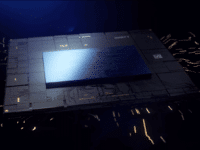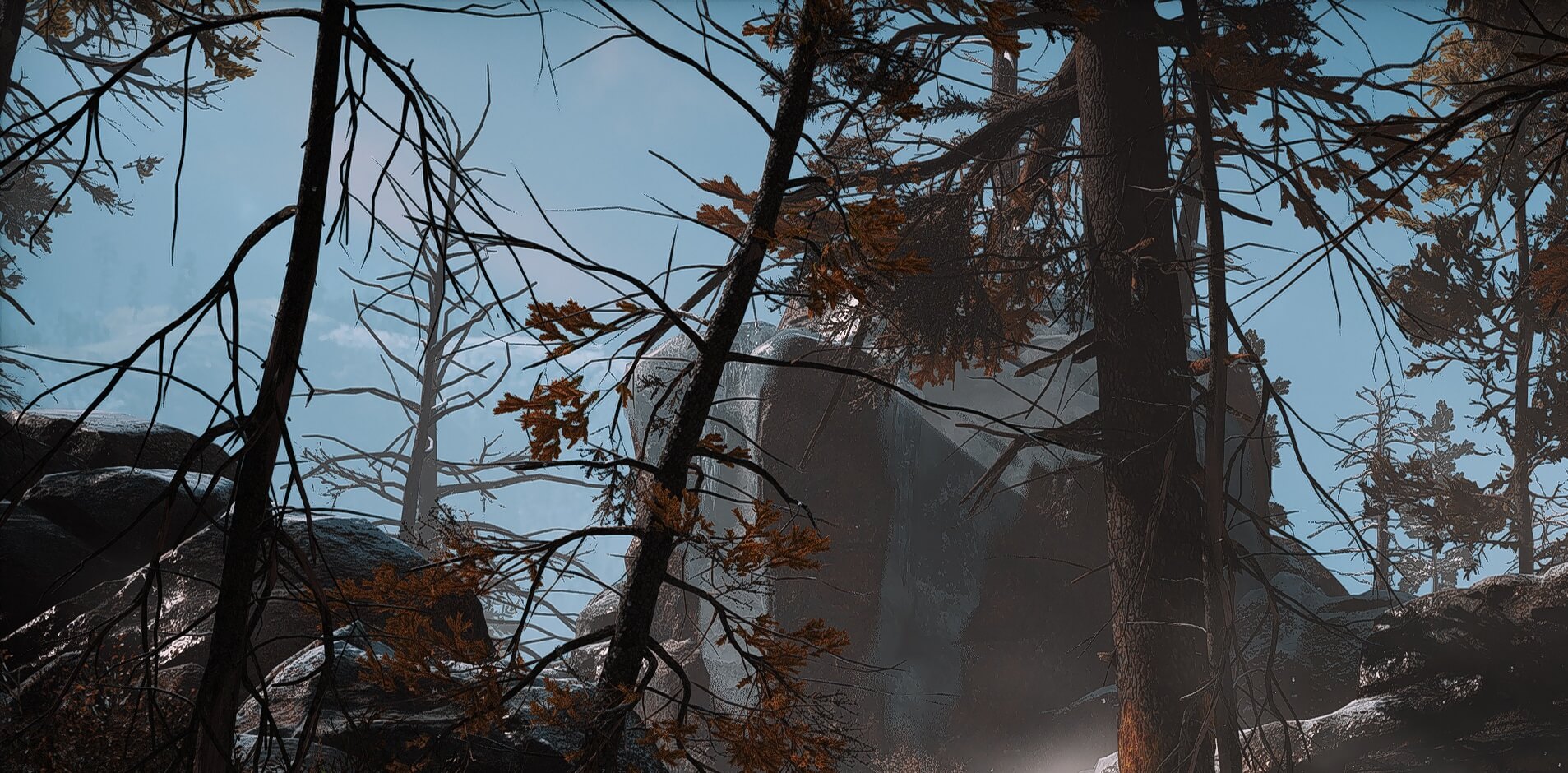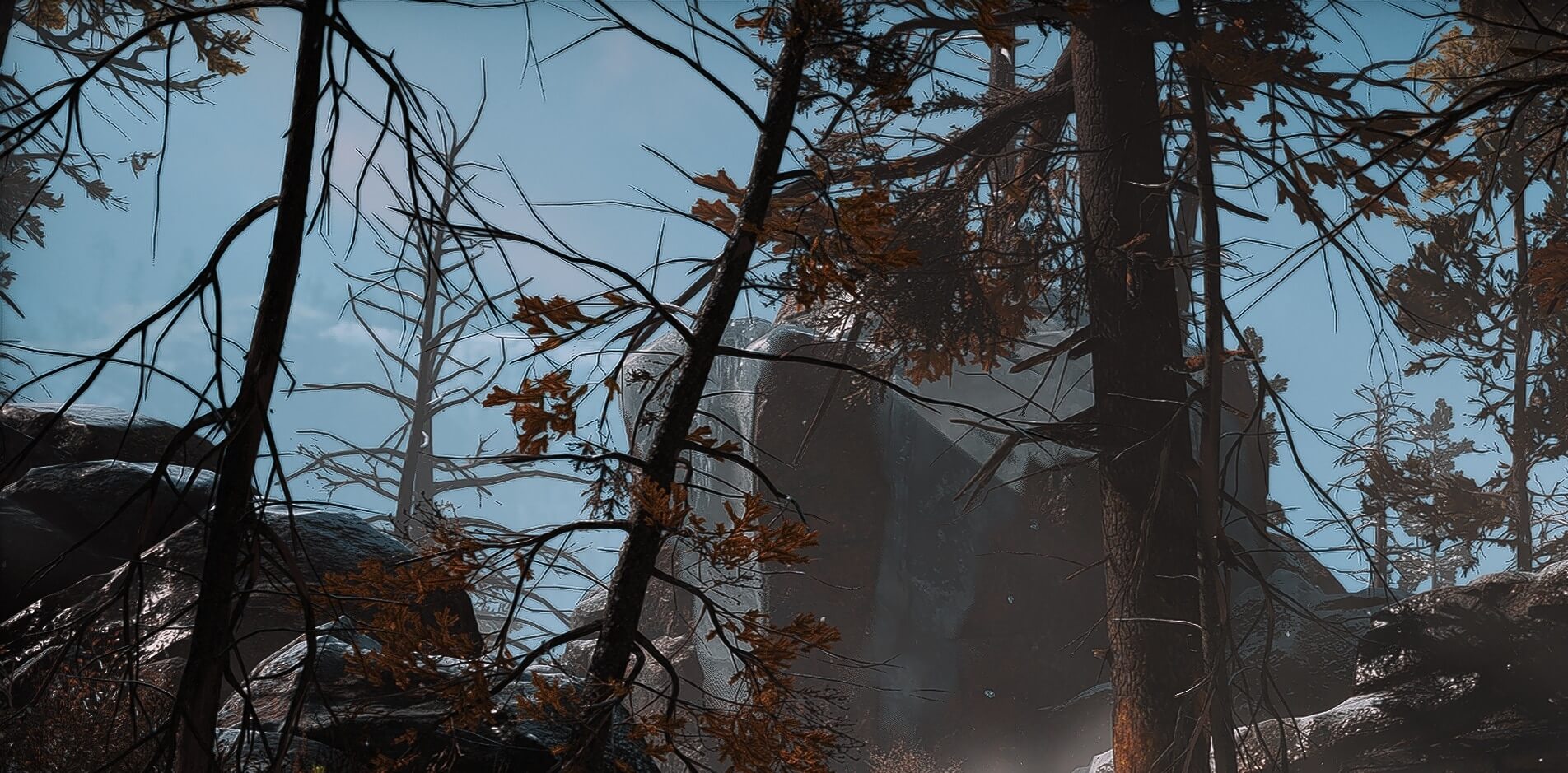The launch of God of War on PC marks the coming of another major PlayStation exclusive to enthusiast 4K/144Hz screens. Support for ultrawide monitors goes on to show Santa Monica Studios’ dedication to the port, heightened by the inclusion of NVIDIA’s DLSS/Reflex and AMD FSR upscaling technologies. In this post, we have a look at these two upsampling technologies and see how far the former has come with the latest implementation (v2.3.4).
Bonus: Click on the above image to open a higher quality version, and try to guess if it’s native or a DLSS/FSR upscaled image.
Let’s have a closer look at the above shot. As a thumb rule, upscaling and anti-aliasing thin objects such as vegetation, chains, hair, and twigs is the hardest, and so that’s where we’ll begin too. Here’s a comparison of DLSS Quality and FSR Ultra Quality. We’re comparing these two as they offer roughly the same performance:

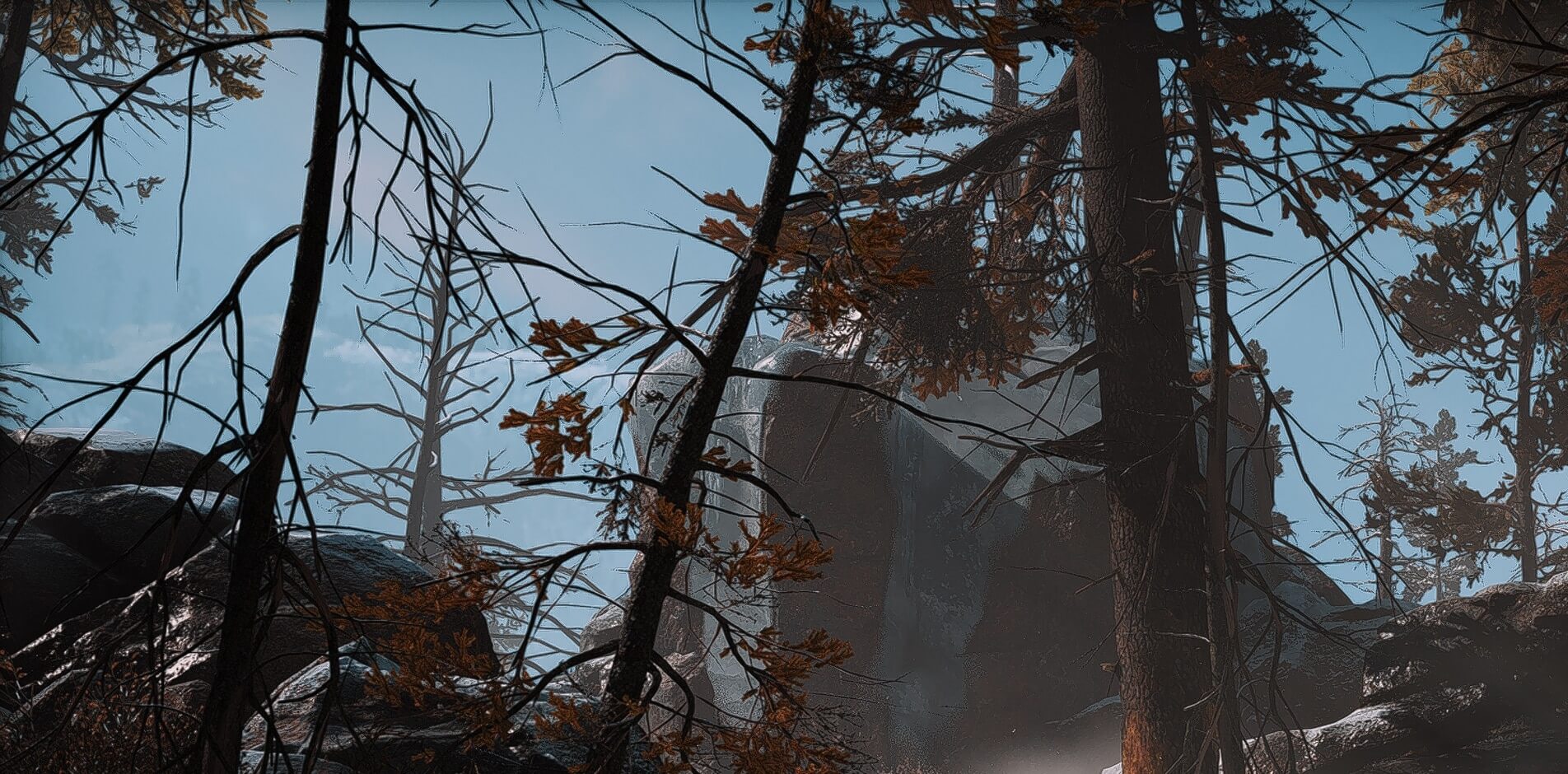
DLSS’s use of temporal vectors and feedback as additional data points is a clear advantage over FSR and its spatial upscaler and sharpener. The tree branches are reconstructed much more accurately with almost no loss in detail by the former while the latter loses a fair bit of it. Something worth noting here is that DLSS causes a slight ghosting effect with the branches, something that is not present with FSR or at native. Other than that, DLSS is virtually identical to native, at times retaining even more detail. This is true for both the Quality and Balanced, and in some cases the Performance preset as well:
In contrast, AMD’s FSR starts losing a notable amount of detail at the Balanced preset, and becoming unbearable at the Performance preset:
The advantages of DLSS over purely spatial upscaling techniques become heavily apparent in scenes with vegetation, or simply forests. In the below comparison, you can see DLSS Balanced easily beating FSR Ultra Quality across the board:
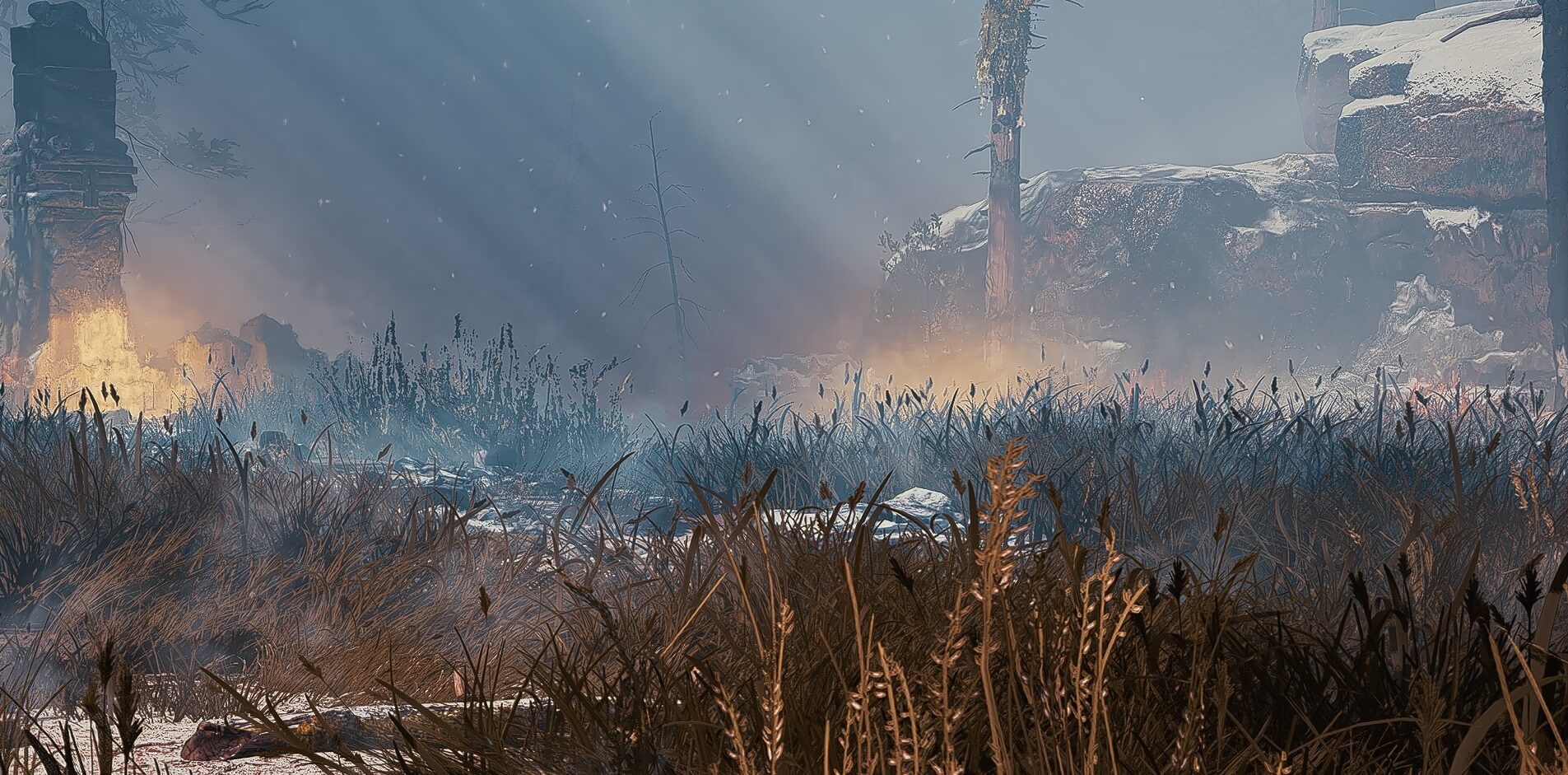

Comparisons continued on the next page…


